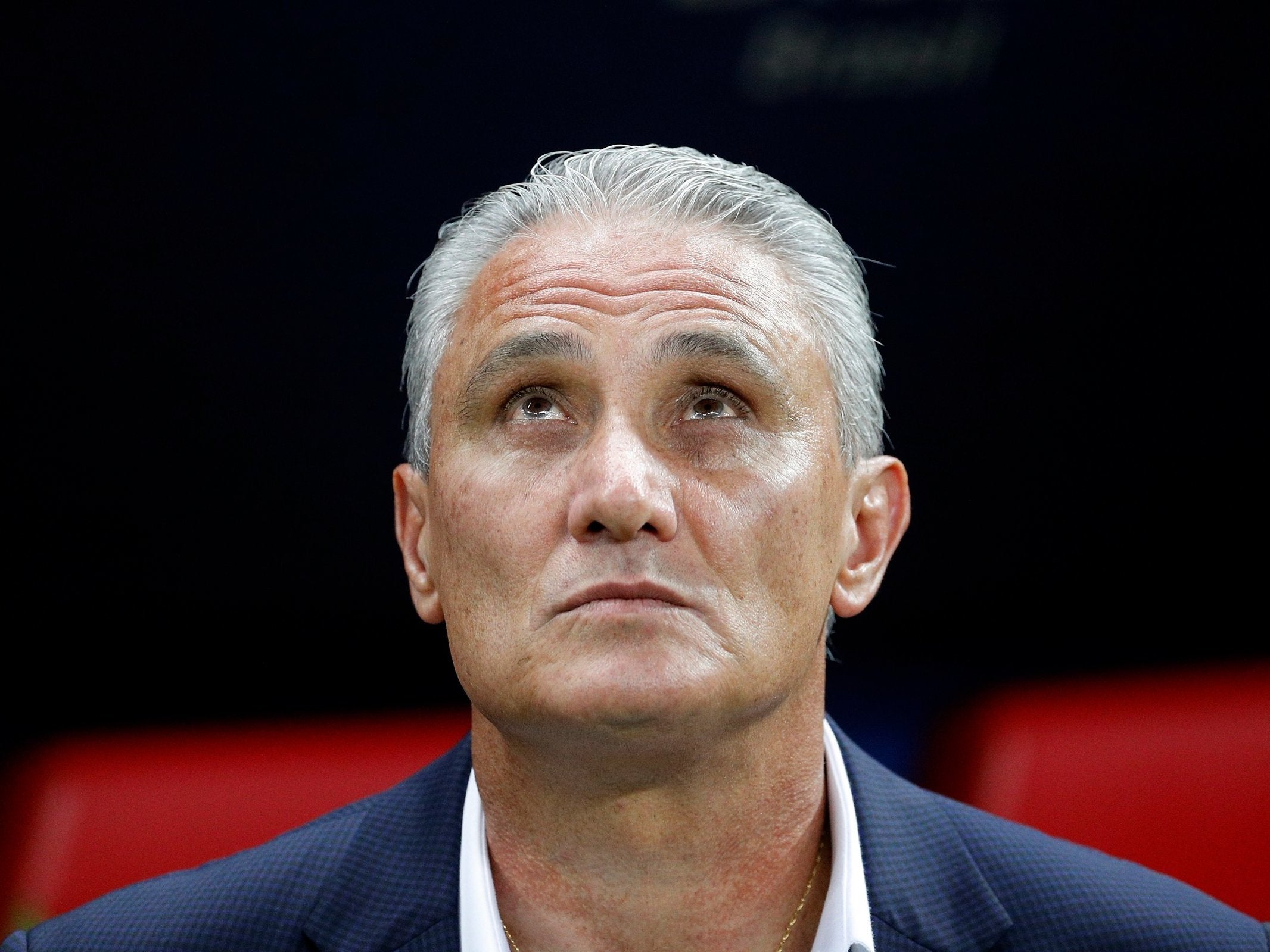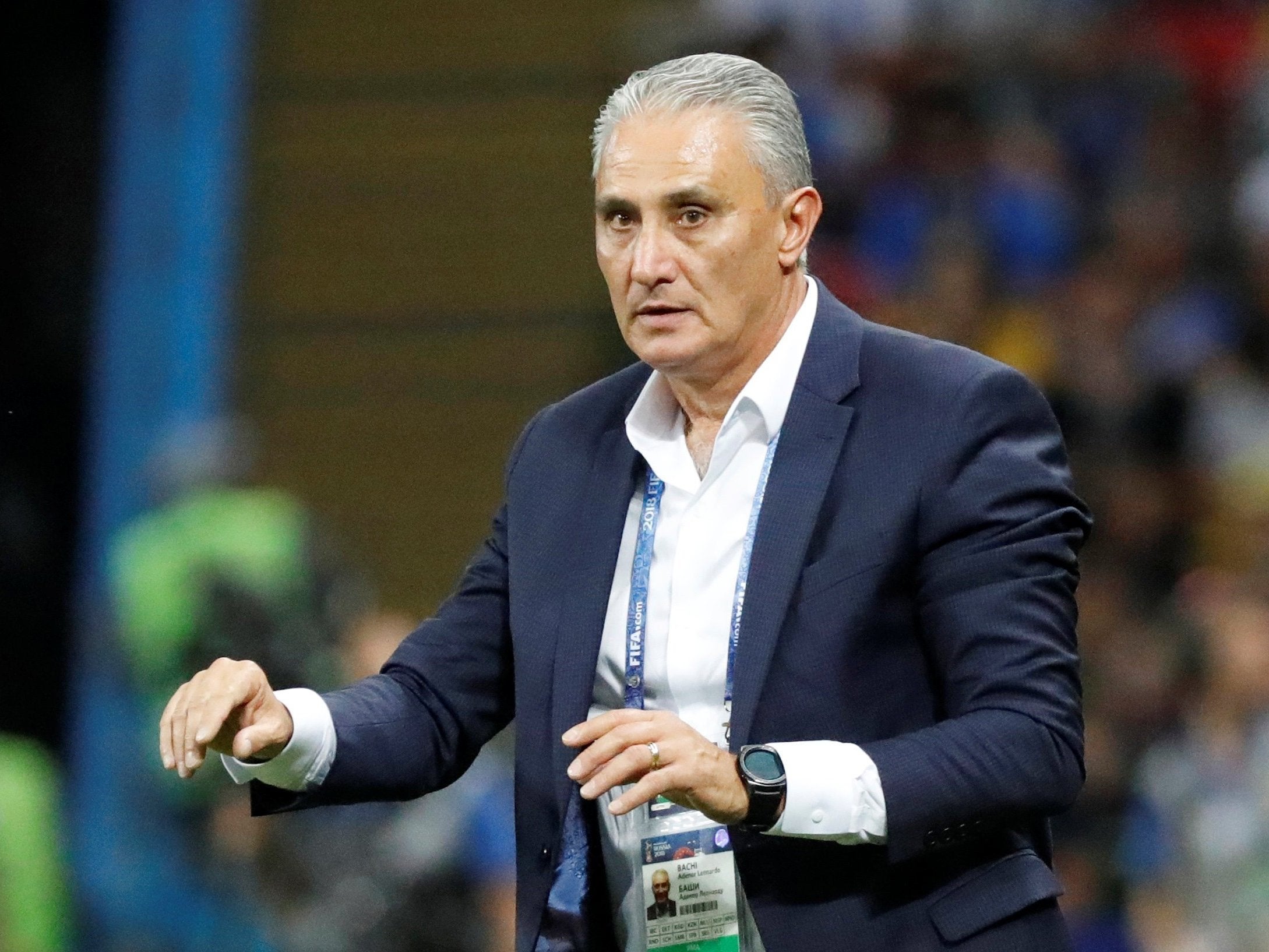Brazil vs Belgium: Despite their World Cup exit, Tite proves his importance to the future of Brazilian football
When all hell normally breaks loose in the passionate cauldron that is Brazilian football, Tite’s calm head rises to bring order, structure and a modern game to the five-time world champions

Your support helps us to tell the story
From reproductive rights to climate change to Big Tech, The Independent is on the ground when the story is developing. Whether it's investigating the financials of Elon Musk's pro-Trump PAC or producing our latest documentary, 'The A Word', which shines a light on the American women fighting for reproductive rights, we know how important it is to parse out the facts from the messaging.
At such a critical moment in US history, we need reporters on the ground. Your donation allows us to keep sending journalists to speak to both sides of the story.
The Independent is trusted by Americans across the entire political spectrum. And unlike many other quality news outlets, we choose not to lock Americans out of our reporting and analysis with paywalls. We believe quality journalism should be available to everyone, paid for by those who can afford it.
Your support makes all the difference.Tite has made no decision about his future and, quite reasonably, said after Brazil’s World Cup quarter-final exit to Belgium that now was not the time to discuss the issue. But his tone was valedictory and that should trouble Brazil. They may have gone out a round earlier at this World Cup than they did at the last, but the football they have played has been far better and, for the first time since 2002, they looked like a team that belonged among the world’s best.
Arguably, in fact, given what a strange World Cup 2002 was, this side is Brazil’s best in more than 20 years. Tite has made them modern. Brazilian football had become very insular. Under Luiz Felipe Scolari and Dunga, there was no sense that Brazil had anything to learn from outside. There was a strange belief in their own indisputable greatness. But Tite took a sabbatical from Corinthians to go to Europe. He studied, he watched, he learned. He came back, had success with Corinthians again and, after the embarrassment of losing to Peru to go out of the Copa America Centenario in the group stage, brought his methods to the national team. They pressed. They played with a sense of cohesion.
It worked. Of 26 games in charge, Tite has lost only two. In that spell, they have conceded only eight goals. Belgium were the first team to score twice against them. His buzz-word is “balance” and his success in instilling that is evident in the fact they have scored 53 goals in those 26 games. Tite’s Brazil have been tight at the back but effective going forward.
He has, as far as is possible (which perhaps is not as far as would be ideal), reduced the dependence on Neymar. Perhaps he could have played Douglas Costa rather than Willian, or Roberto Firmino rather than Gabriel Jesus, but those are personal preferences and the argument can be made either way. But until they ran into Roberto Martinez and his unexpected false nine, they had looked ruthless, particularly as Neymar returned to full fitness.
But perhaps Tite’s greatest gift is his good sense and generosity of spirit. Who else would have taken time to point out what a great game the quarter-final had been? In a fevered post-match press-conference, he was the calmest Brazilian in the room. He was offered the chance to blame luck, the referee or even God for Brazil’s defeat, and declined them all. “I don’t like to talk about luck,” he said. “It’s an educated manner of putting down people’s skills. They were skilful. They finished well. There was no luck. There was Courtois. Was he lucky? No, he did well.”

Such generosity of spirit, such self-awareness, is a significant contrast to his immediate predecessors. The referee? “I don’t want to talk about it. It seems like you’re whining.” And God, whom he had questioned when Danilo, Marcelo and Fred were all struggling with injury? “I’m not questioning God. When I questioned God with the injuries it was a moment of imbalance. You just try to look for balance in matches. It’s not volleyball or basketball where you just add up the points. It’s different, sometimes you are imbalanced and the opponent has quality. You create a structure but sometimes you get a goalkeeper playing like that.”

Brazilian football needs somebody of such clear-sightedness in charge. Watching Tite in action over the past few weeks has been an education. His press-conferences all tend to follow the same pattern: fury to begin with as Brazilian journalists pursue whatever line they have decided to take and flail about looking for enemies within or without yielding slowly to calm as Tite soothes them. That is a valuable commodity, particularly in a culture as obsessed by winning and losing, and as uninterested in process as Brazilian football.

“Football has many variables and has to be seen in context,” Tite said. “It’s not just blah, blah here, it has to be assessed in a holistic way, tactically, technically, emotionally and physically.” That’s the approach to carry Brazil forward. Tite has proved he is capable of making that sort of assessment, has proved his worth. He is the figure they need, but it may be that his time already has gone.
Join our commenting forum
Join thought-provoking conversations, follow other Independent readers and see their replies
Comments